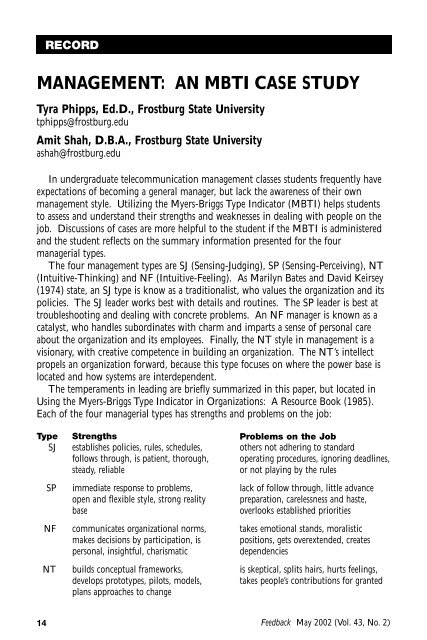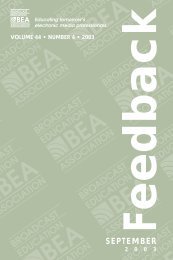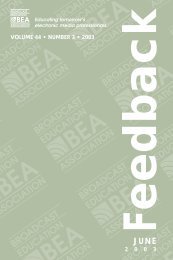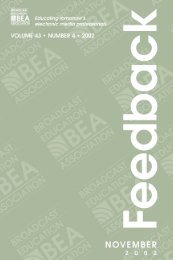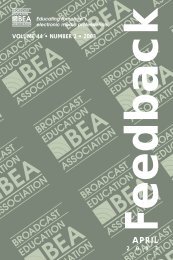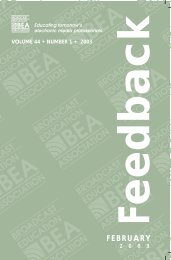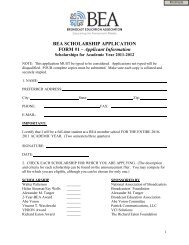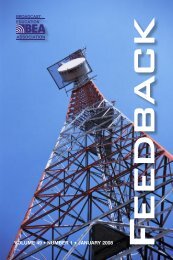Feedback May 2002 (Vol 43 No 2)
Feedback May 2002 (Vol. 43, No. 2) - Broadcast Education ...
Feedback May 2002 (Vol. 43, No. 2) - Broadcast Education ...
- No tags were found...
Create successful ePaper yourself
Turn your PDF publications into a flip-book with our unique Google optimized e-Paper software.
RECORDMANAGEMENT: AN MBTI CASE STUDYTyra Phipps, Ed.D., Frostburg State Universitytphipps@frostburg.eduAmit Shah, D.B.A., Frostburg State Universityashah@frostburg.eduIn undergraduate telecommunication management classes students frequently haveexpectations of becoming a general manager, but lack the awareness of their ownmanagement style. Utilizing the Myers-Briggs Type Indicator (MBTI) helps studentsto assess and understand their strengths and weaknesses in dealing with people on thejob. Discussions of cases are more helpful to the student if the MBTI is administeredand the student reflects on the summary information presented for the fourmanagerial types.The four management types are SJ (Sensing-Judging), SP (Sensing-Perceiving), NT(Intuitive-Thinking) and NF (Intuitive-Feeling). As Marilyn Bates and David Keirsey(1974) state, an SJ type is know as a traditionalist, who values the organization and itspolicies. The SJ leader works best with details and routines. The SP leader is best attroubleshooting and dealing with concrete problems. An NF manager is known as acatalyst, who handles subordinates with charm and imparts a sense of personal careabout the organization and its employees. Finally, the NT style in management is avisionary, with creative competence in building an organization. The NT’s intellectpropels an organization forward, because this type focuses on where the power base islocated and how systems are interdependent.The temperaments in leading are briefly summarized in this paper, but located inUsing the Myers-Briggs Type Indicator in Organizations: A Resource Book (1985).Each of the four managerial types has strengths and problems on the job:TypeSJSPNFNTStrengthsestablishes policies, rules, schedules,follows through, is patient, thorough,steady, reliableimmediate response to problems,open and flexible style, strong realitybasecommunicates organizational norms,makes decisions by participation, ispersonal, insightful, charismaticbuilds conceptual frameworks,develops prototypes, pilots, models,plans approaches to changeProblems on the Jobothers not adhering to standardoperating procedures, ignoring deadlines,or not playing by the ruleslack of follow through, little advancepreparation, carelessness and haste,overlooks established prioritiestakes emotional stands, moralisticpositions, gets overextended, createsdependenciesis skeptical, splits hairs, hurts feelings,takes people’s contributions for granted14 <strong>Feedback</strong> <strong>May</strong> <strong>2002</strong> (<strong>Vol</strong>. <strong>43</strong>, <strong>No</strong>. 2)


